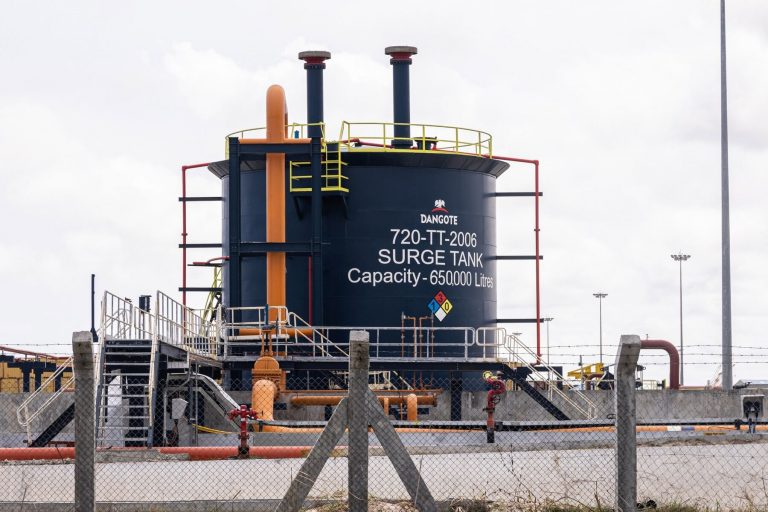
The Dangote Refinery is set to make a significant impact on Nigeria’s industrial sector by commencing polypropylene production by the end of October 2024. This move, poised to revolutionize the domestic supply chain, is expected to effectively curb the nation’s reliance on polypropylene imports, a critical raw material across industries such as packaging, textiles, and automotive manufacturing.
Polypropylene, a versatile polymer, is used extensively to create everything from plastic containers and automotive parts to fibers used in clothing and carpets.
Chairman of Dangote Group, Aliko Dangote, disclosed that the refinery is nearing full operational capacity and will soon meet local demand for polypropylene, a product that has historically been imported, costing Nigeria approximately $267.7 million annually. As Dangote noted, this transition to local production marks a major step toward reducing the strain on Nigeria’s economy caused by import dependence.
Tekedia Mini-MBA edition 16 (Feb 10 – May 3, 2025) opens registrations; register today for early bird discounts.
Tekedia AI in Business Masterclass opens registrations here.
Join Tekedia Capital Syndicate and invest in Africa’s finest startups here.
“Let me assure you of one thing,” he stated confidently, “Nigeria from October will not import any more polypropylene, which used to be about a quarter of a million tons. No more imports of polypropylene.”
The significance of this development cannot be overstated, particularly given the foreign exchange challenges faced by Nigeria’s industrial sector. For years, businesses involved in packaging, textiles, and automotive parts manufacturing have been grappling with delayed shipments due to foreign exchange shortages and long import timelines. This has forced many to adopt contingency strategies, such as stockpiling polypropylene to avoid disruptions in production.
Dangote addressed these issues directly, explaining how the refinery would eliminate such bottlenecks. He said the refinery is prepared to fully supply the market, and this will alleviate the struggles of local manufacturers who have been stocking up due to import delays.
Industry stakeholders are optimistic that the availability of domestically produced polypropylene will improve operational efficiency for manufacturers, enabling them to redirect their resources toward expanding production and improving competitiveness. This shift comes at a time when many industries have been under immense pressure, compounded by the depreciation of the naira and increasing import costs due to global supply chain disruptions.
Economic and Industrial Significance of Polypropylene
Polypropylene is indispensable in modern manufacturing due to its flexibility, strength, and resistance to chemicals and high temperatures. Its applications span various sectors, from the automotive industry, where it is used to make bumpers, battery cases, and interior trims, to consumer goods, such as food containers, furniture, and textiles.
Given the breadth of its applications, the economic impact of local polypropylene production will be profound. Experts believe that this development could stimulate the growth of related industries, especially Nigeria’s young automobile industry, by providing them with a reliable and affordable supply of raw materials.
According to industry analysts, the shift towards local production of polypropylene represents a major win for Nigerian manufacturers. Not only does it insulate them from global market volatility, but it also offers cost advantages that could help them compete more effectively both locally and internationally.
Additionally, the Dangote Refinery’s capacity to meet local demand for polypropylene is expected to open doors for Nigeria to export surplus production to neighboring countries, potentially positioning the nation as a key supplier of the material in the West African region. The African market has long been reliant on imports from Asia and the Middle East, and with the Dangote Refinery in play, business leaders believe Nigeria could challenge these regions’ dominance in the market.
This expansion into polypropylene production is in line with the Federal Government’s industrialization agenda, which aims to boost local production, reduce import dependence, and create a more resilient economy.
The commencement of polypropylene production at the Dangote Refinery marks a major milestone in Nigeria’s broader industrialization efforts. The refinery itself, billed as Africa’s largest, is expected to be a game-changer not just for Nigeria but for the entire continent. In addition to producing fuels, the refinery will serve as a significant petrochemical hub, generating other by-products essential for various industries, including plastics, fertilizers, and chemicals.
During a recent press briefing, Dangote reiterated the broader impact of the refinery’s operations.
“We are committed to ensuring that Nigeria not only meets its own needs but also plays a significant role in the regional and global markets. This is not just about self-sufficiency but about positioning Nigeria as a leader in industrial production across Africa,” he said.
For years, Nigeria has faced significant trade deficits, with a high percentage of its foreign exchange earnings allocated to importing raw materials like polypropylene. This has made the country vulnerable to global market fluctuations, as well as foreign exchange shortages that have hindered industrial output.
The expected cost savings from local polypropylene production will be significant, as manufacturers will no longer have to contend with the high costs associated with importing the material, which have been exacerbated by fluctuations in global oil prices and supply chain issues. Experts expect this to result in more affordable finished goods, which could, in turn, lead to lower prices for Nigerian consumers.



